Revolutionising cold food storage with solar power in the Sahel
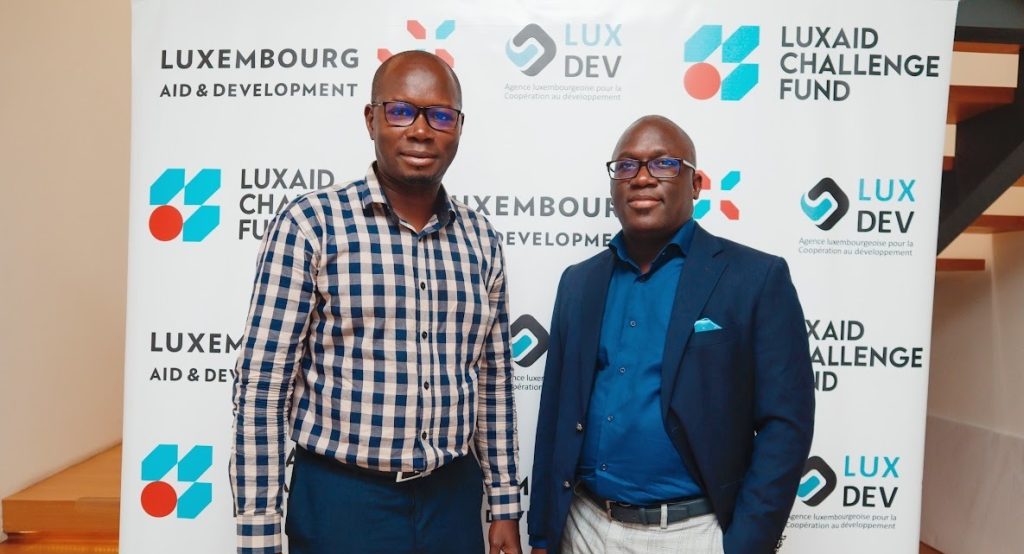
In April 2024, Luxembourg’s Development Cooperation selected 10 game-changing innovations from over 250 submissions by young enterprises in Burkina Faso, Mali, and Senegal. Co-financing from the LuxAid Challenge Fund is set to boost their growth while addressing urgent challenges in distance learning and food security. Discover below two standout solutions that harness solar energy to preserve crops and enhance food security in Burkina Faso and Senegal.
Boosting food security with smarter storage solutions
In sub-Saharan Africa, significant crop losses occur during cultivation and post-harvest, limiting productivity and leaving farmers unable to feed a growing population. The lack of adequate refrigeration solutions contributes to a 38% loss in food production (between cultivation and post-harvest)1, while undernourishment continues to rise, reaching 22.5% in 20222.
For example, in Burkina Faso, a significant share of fruits, especially mangoes and citrus, along with vegetables, is lost due to the lack of cold storage. Without proper refrigeration, transporting and preserving fresh produce like vegetables and meat not only raises health risks but also results in financial losses for small-scale producers. In Senegal, even though some onion farmers managed to boost their productivity, the lack of storage solutions forces them to sell their crops immediately, often at low prices.
Access to proper storage, including refrigeration, is key to tackling these challenges. On a larger scale, improving the cold chain could save over 475 million tonnes of food each year, enough to feed 950 million people3. But why is it so hard to address?
First, much of the existing equipment isn’t suited to African conditions — refrigerated transport vehicles are usually imported and come with a hefty price tag. Small producers and traders are also not always organised into cooperatives for the storage and transport of their produce. Financial limitations further prevent them from making these necessary investments. On top of that, many rural areas still struggle with consistent access to electricity, making refrigeration even tougher.
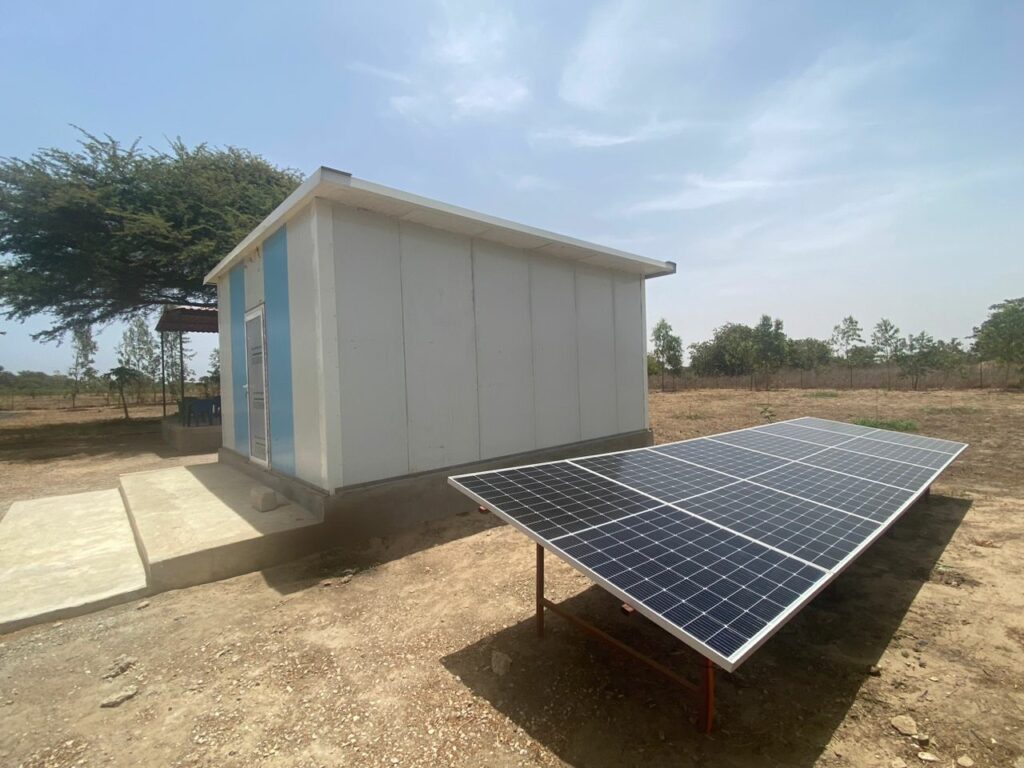
Solar-powered refrigerated storage unit (© Ibriz)
Solar energy: tailoring solutions to meet local needs
For the past four years, Ibriz has been working to boost agricultural productivity by supplying solar-powered pumping and irrigation systems to over 1,000 farmers, 45% of whom are women. Imagine it as giving these farmers a reliable “tap” of energy to help them water their crops. They’ve also introduced an innovative solution by partnering with microfinance institutions, enabling farmers to pay for their systems in manageable instalments—like breaking down a large investment into small, bite-sized pieces. However, with increased productivity comes a new challenge: storage.
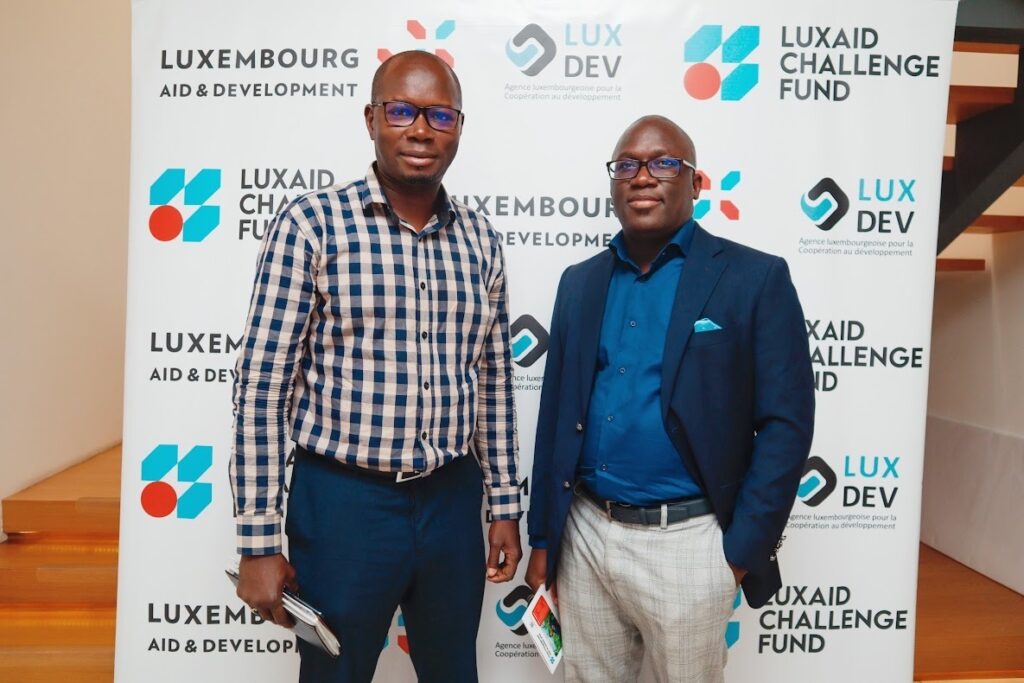
Serigne Sam NDAO and Bou DIARRA, co-founders of Ibriz
“While boosting their agricultural output, our clients encountered difficulties in storing this surplus, particularly onions” explained Bou Diarra and Serigne Sam Ndao, co-founders of Ibriz. “We therefore expanded our services to include solar-powered refrigerated storage units, which are remotely monitored via a platform that tracks both internal and external temperature conditions.”

Aimé Pascal KABORÉ, co-founder of FASOTRAP
Now, let’s head to Burkina Faso: Aimé Pascal Kaboré, a self-taught teacher with a passion for technology, and Ali Kaboré, a solar energy engineer, saw the problem of post-harvest losses in their hometown of Diapaga. “We want to improve access to fresh, high-quality food, and we believe that to meet the needs of Burkina Faso, we must develop innovative solutions locally.”
Since 2021, FASO Transport of Perishable Foods (FASOTRAP SAS) has been providing affordable, energy-efficient refrigerated storage solutions, powered by electricity, solar energy, or petrol. Customers can choose between purchasing, installment plans, or rental options, allowing small farmers and fresh produce traders to access a solution that’s 3 to 5 times more cost-effective than a traditional refrigerated truck. A standout example of their adaptability is their flagship product: a tricycle equipped with a cold storage unit powered by solar panels.
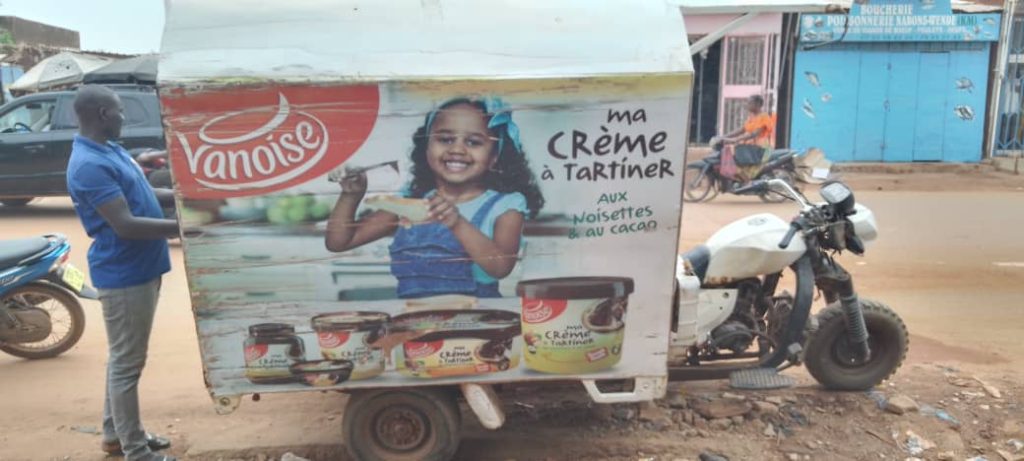
FASOTRAP mobile refrigeration unit
Driving real change for small producers with LuxAid Challenge Fund
In Senegal, onion prices usually rise by 20% outside the production period. Co-financing from the LuxAid Challenge Fund has enabled Ibriz to install three new storage units for onion producer cooperatives in the Niayes region, which consists of 20,000 members. Additionally, Ibriz is providing solar-powered pumping and irrigation systems to 300 new vegetable producers. Each of these storage units has a capacity of 20 tonnes, allowing producers to generate up to EUR 18,000 in additional income annually. Through these innovative solutions, Ibriz aims to strengthen food security for 3,000 people, prevent the emission of 1,200 tonnes of CO2 each year, and increase farmers’ income by 30%.
Meanwhile, FASOTRAP has already assisted over 100 small farmers in preserving their produce, significantly boosting their income. Improved preservation allows producers to time their sales for higher prices. With co-financing from the LuxAid Challenge Fund, FASOTRAP plans to scale up its operations, increasing sales from 30 units in 2023 to over 200 within the next two years. This expansion will help users of these refrigerated units boost their income by 30%, thereby enhancing food security, stimulating the local economy, and reducing the carbon footprint of the cold chain.
Innovate for impact: New calls for proposals to address critical social issues
New calls for proposals under the LuxAid Challenge Fund will soon be open in countries where Luxembourg’s Development Cooperation is active. Want to know more? Follow LuxDev on social media (Facebook: @LuxDevHQ; LinkedIn: @LuxDev; X: @LuxDev_HQ) or browse on www.luxaidbusiness4impact.lu
1 https://iifiir.org/fr/actualites/reduire-les-pertes-alimentaires-apres-recolte-en-afrique-subsaharienne
2 FAO
3 Estimations LuxDev
Related projects
Related articles
-
LuxAid Challenge Fund
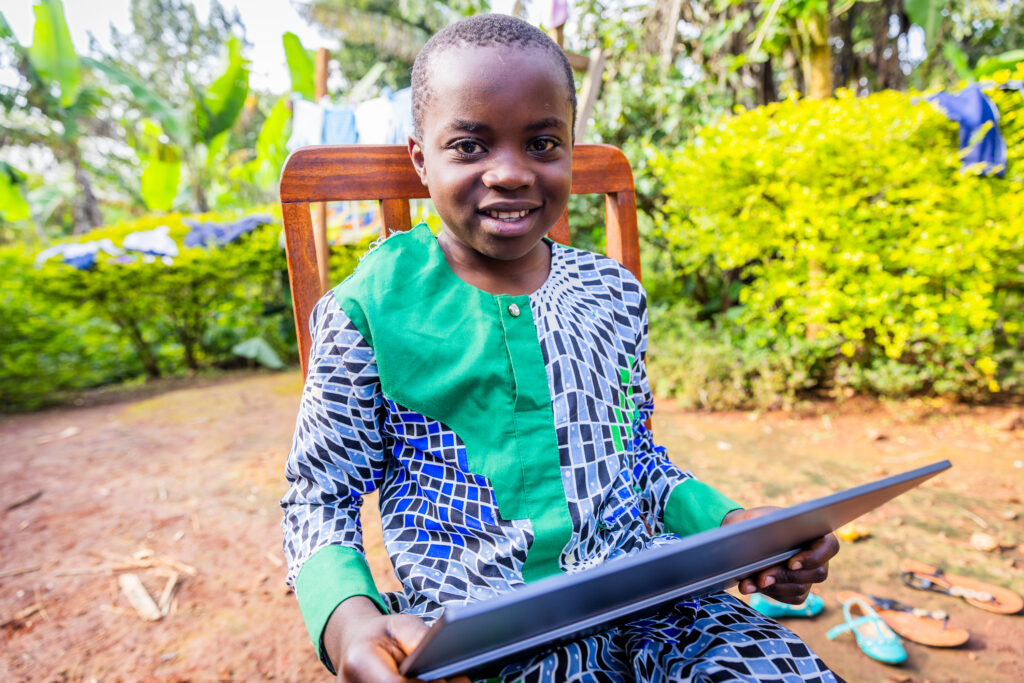 Nov. 2023
Nov. 2023First LuxAid Challenge Fund call for projects launched in the Sahel!
Co-financing opportunities : Young companies in Burkina Faso, Mali and Senegal, on your marks! The Luxembourg Development Cooperation is launching a call for projects to accelerate innovation in distance learning and food safety. Get up to €140,000 in support! -
LuxAid Challenge Fund
 Nov. 2024
Nov. 20242 M EUR boost for Kosovar business innovators tackling key challenges in manufacturing, education, healthcare and mobility
The Luxembourg Development Cooperation has just opened a call for proposals targeting enterprises with bold, innovative solutions to tackle societal challenges. Through the LuxAid Challenge Fund (LCF) and the LuxAid Demonstration Fund (LDF), businesses can secure up to EUR 350,000 in co-financing to scale transformative ideas in manufacturing, education, healthcare,...
